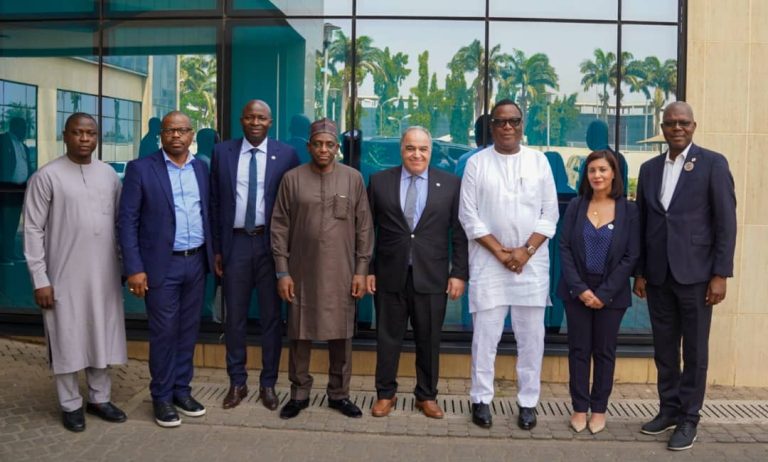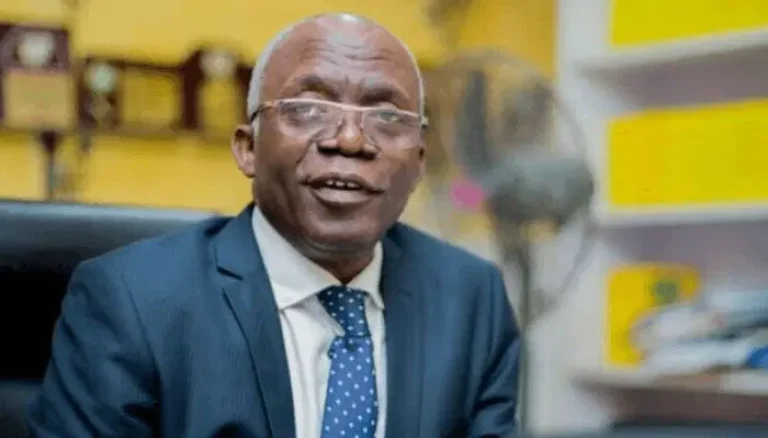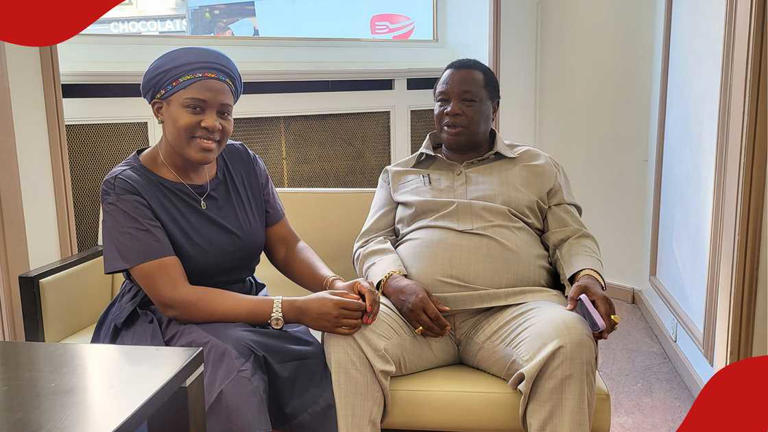
The new National President of the Miyetti Allah Cattle Breeders Association of Nigeria, Baba Ngelzarma, in this interview with GODFREY GEORGE, speaks about endorsing a presidential candidate for the 2023 elections, ranching and how politicians use cattle business for money laundering
You stated in a recent publication that you had tabled a seven-point agenda to the leading presidential candidates in the next political dispensation. What are these agenda?
We have presented our demands to the presidential candidates of the All Progressives Congress, Bola Tinubu; the Peoples Democratic Party, Atiku Abubakar; the Labour Party, Peter Obi; and the New Nigeria Peoples Party, Rabiu Kwanwaso, and we are awaiting their responses. We are waiting for them to give us an appointment to tell us how they have included the lives of the Nigerian pastoralists in their manifestos.
You also mentioned that in 2019, you supported the President, Major General Muhammadu Buhari (retd.), but that you have been ‘neglected’ by his government. What exactly do you mean by this?
None of the ideals of the pastoralists have been addressed by this administration. Our grazing reserves are there without development. They lack water and grass. Even the ranching concept that was introduced under the Livestock Transformation Plan is not one that will solve the problem. We need a model that can suit the peculiarities of the pastoralists that we have. This is because we have a pastoralist society that is not educated. Education has not been given to them. We need a new model. These pastoralists are doing cattle business as a business and as a way of life, and most of them are small-holder farmers who have not more than 20 or 30 cows in their herds. This is their only source of livelihood. How do you expect these guys to buy land, and put water and other amenities there? We need a simpler model that can suit their peculiarities. We need models like developing grazing reserves, which are areas that have been designated for grazing by pastoralists. Some have infrastructures, such as dams, veterinary clinics and others, in them. But because of the neglect, the structures have been allowed to dilapidate. Even the palatable grass eaten by the cows is no longer there in the reserves. We need a model that will make these reserves attractive to these herders. It is when it becomes attractive to these herders that we can begin to educate them so they can understand the advantages of this modernised animal husbandry, which is better than the primitive system they have been practising for years now. They need to be educated on it before they can embrace it.
Are you saying your organisation is not opposed to ranching?
We are not opposed to ranching or settlements. We want the herders to settle in one place. That is what will solve the problems. As long as they continue to roam the wild, they will continue to have trouble. Now, the pastoralists and the farmers are becoming suspicious of each other unlike before when there was very good communication between them. Now, there is a lack of good communication between them. It has been replaced by confusion. We need a model that will educate the herders through formal and informal education first before implementation. The herders also need other skills beyond cattle rearing. Education, as we know, is power. These are the things we are requesting from the candidates.
The National Livestock Transformation Plan is capital-intensive. How will a smallholder herder be able to build a ranch that will accommodate about 600 to 800 cows? Herders are always at the receiving end of these policies. These herders are living in the forests with what they have. They are living in vulnerable conditions with all they have. They always move with their health and their families so they require protection. This is because they are doing business. Cattle rearing is a business. So, they also require protection like any other businessman. From the insurgency in the North down to whatever forms of crisis down South, herders remain at the receiving end. But they get no support when they lose any cattle or fortune. No one gives them palliatives. There are no forms of support. These is the lack of support we are crying about. There is no education and there is no plan.
When we speak of livestock, we are speaking of 98 per cent of the Fulani populace in the country. What we are saying is that they require attention in the education sector, the agricultural and livestock sub-sector and in training in other forms of skills. This is what we have been crying about.
Many farmers have accused members of your association of invading their farms and eating up their crops which have transmogrified into the now infamous farmer-herder crisis that has ravaged the country. What do you have to say about this?
How can herders grab someone’s land? How are they going to do so? These are people who are moving from one place to another. It has been their tradition. Whoever knows a Fulani man knows him with movement. Today, you see him; tomorrow you don’t see him again because he has moved to another place. No Fulani wants to grab anybody’s land. Our members don’t care much about land. If they care, they would have taken over land in the northern part of the country. But even there, they don’t have land because they are traditionally moving from one place to another in search of grass for their cattle to eat. What is moving them to the southern part is the search for water and pasture for their cows. This is the only thing they know. There was never an attempt by any administration to try to transform them into an organised system of animal husbandry. They have been neglected. So, they are doing the only thing their forefathers taught them to do because there is an attempt to transform them. There was no attempt to educate them. It is until when one is educated that one will understand things. These guys have not received any training to understand the advantages of this modern animal husbandry. They are doing what they are doing as a way of life and as an only source of livelihood. Who will sit in a place and watch their only source of livelihood vanish as a result of hunger, dying as a result of water and grass? They have to move in search of water and grace.
This has proven to be unsustainable, which is why ranching was introduced…
Yes, it is true that it is shown to be unsustainable. The population is increasing and will continue to increase against the land that doesn’t increase. So, this movement must be stopped. But how? This will be done by giving them training and letting them understand these modernised models. Come to the periphery of Kano and see them. They are already adapting and they have become sedentary only because there is a milk processing plant there, collecting and processing their milk on a daily basis. This has made them sedentary. By becoming sedentary, they have enrolled their kids in the community primary schools. This is simply because there is a milk processing factory taking their milk for processing. This is what made them sedentary. This has made the relationship between them and the farmers stronger. At the end of the farming year, they buy the farm residue and feed their cattle with it. Or, sometimes, the farmers will ask them to bring their cattle into their farms to eat up the residue so they can get the cow dung and urine as fertilizer. This has created a symbiotic relationship between them and given them a good understanding. When they are left on their own, they will behave the way they know how to behave. But criminality doesn’t discriminate between tribes and religions. Criminality is a common uterus. There is no tribe that you don’t find in criminality. But unfortunately, the media has given negative profiling to the Fulani herders. Are all the Fulani criminals? Do I look like a criminal to you? We have respected Fulani men who are traditional rulers; are they criminals? Mention any profession; there is none in which you will not find a Fulani man excelling. They have excelled in every field of endeavor, not just in Nigeria alone.
For someone to label all the Fulani in the country criminal is unfair. We are not criminals. We at MACBAN represent our members. Not every Fulani herder is our member. We can only talk about our members. We only talk on behalf of those who are our members. There are other pastoralist groups – more than 20 of them in this country – who are all working for the interest of the pastoralists in the country. So, not everybody is a criminal. Criminals are criminals. Don’t say ‘Fulani criminal’. This is deliberate in order to tarnish the image of the Fulani. Have you ever heard of an Igbo criminal or Yoruba criminal? Criminals are criminals, irrespective of tribe and that is one thing Nigerians must be made to understand. We don’t represent criminals. We represent well-behaved, peace-loving pastoralists. I cannot kill an ant as I am here, so how will I represent a group of criminals?
But there have been issues around kidnapping, especially allegedly perpetrated by herders. In your press release, you agreed that all these are caused by poverty. Would you like to further expand this?
The Anambra State Governor, Charles Soludo, said he realised that most of the crimes alleged to have been perpetrated by the Fulani are not actually being done by them but by the natives. This is the same in Ekiti State. Imagine what took place in the Catholic Church in Owo, Ondo State, before discovery, has been alleged to have been perpetrated by the Fulani. After the investigation, who were the perpetrators? They were not Fulani. So, this is sheer hatred. This is pure negative profiling. We are not saying there are no criminals among the Fulani. There are criminals among them like there are in Yoruba, Igbo and every other tribe in Nigeria. But I can give you more than one thousand examples where the perpetrators have been caught and they turn out to be other tribes and not Fulani. By alleging something without investigating, you are narrowing the channels of investigation. By doing so, you won’t solve the problem. You will be looking towards the North while the problem is in the South. Nigeria has to learn how to be neutral and stop jumping into conclusions because they seem not to like the Fulani. We are not shielding any Fulani man but the right thing should be done.
You raised the alarm that politicians were using cattle businesses for money laundering. How is this done?
Go to the cattle market today, you will never go and buy cattle and be issued a receipt. There has to be some form of organisation so that the Federal Government can get some money and for sanity to be put in the profession. Now, one can buy trailer loads of cows and not even a receipt is issued. Money just exchanges hands. If a receipt is issued, it will enable them to trace if the cows are stolen or if the money used to buy the cows is stolen. Instead of this business to bring prosperity to the country, it is now being used for money laundering. With the introduction of the cashless policy, people are now using their money to buy cows. This has become a place where they will hide their money because no one needs any scrutiny or receipt even for 10 trailers of cows in a particular market in a day. Is this proper? This is a multi-trillion naira business. So, it is the revenue venture. It is next to oil and gas. We see ourselves as a trade group because our members are doing legitimate business rearing the cows, and selling the goats and chickens for their daily routines. They are the sole suppliers in the country. What has the FG done to tap from these ventures? Nothing. This is why we are crying out to the government for attention and support. We must accept the fact that Buhari is a Fulani man; he is one of us. But then, this will not stop us from saying the truth about what is going on in the livestock sub-sector. There is outright neglect in the sector. Simple.
Looking back at the last eight years and in light of your lamentations, will you say you regret supporting Buhari?
We have never regretted supporting any candidate in Nigeria. In our group, there is no interest group that one will not find. We have the PDP, APC, LP and what have you. MACBAN is not a political group. We only do things when we see the importance of doing them. We don’t take decisions on our own. When we supported Buhari in 2019, that was the decision of the entire congress. The congress is the one who makes such decisions, not mine. That is why we have submitted a seven-point agenda to the presidential candidates to see their response before we see who to support. If we say we are not endorsing any of them, we are not stopping members of the congress from supporting them in their own individual capacities because we all have our interests. This time around, we said we must first issue them our demands to see how they will respond to them. We are not against any of them.
What is the stance of MACBAN on the new policy by the Central Bank of Nigeria restricting withdrawal limits and promoting digital payment?
If the cashless policy is fully implemented, one cannot just go and buy cows the way they like without a receipt. With the advent of digital payment, this money can be traced. It will help curb criminality and will help curb money laundering. The policy, we believe, will stimulate the economy in the right direction. We still have some observations which we will issue a statement later about. We believe that the issue of money laundering with the cow will be checked. Liquid cash can no longer be used to buy cows. By this, one is creating a traceable record. Money will be saved from printing the currency bills.
(Punch)








245887 591628Register a domain, search for available domains, renew and transfer domains, and decide on from a wide variety of domain extensions. 622809